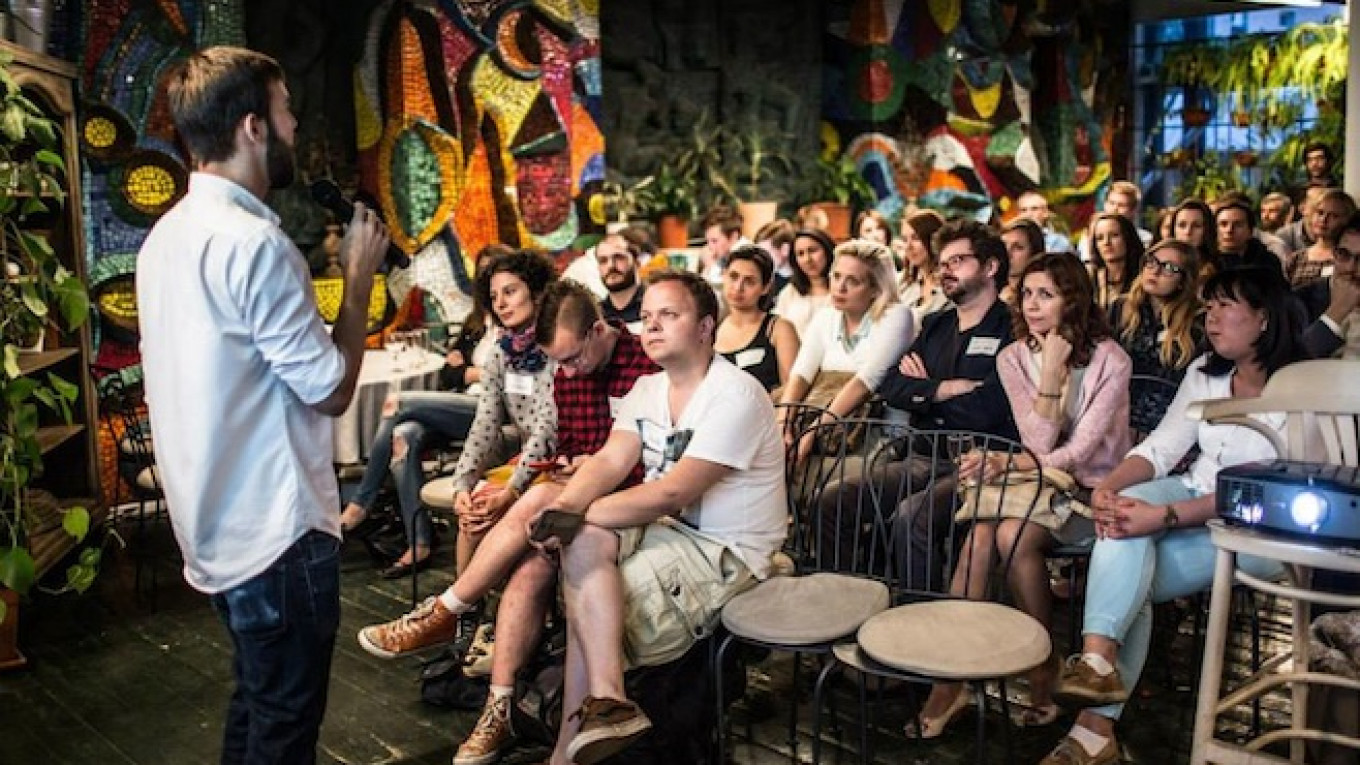If there is one thing you can say about the media landscape in Russia — it's bad and probably getting worse. But a young Russian-American team thinks that this tough media environment is just the place for a new start-up.
In the past years, the media in Russia and the former Soviet republics have been hit by several economic crises. Most recently when the ruble fell drastically against the dollar and euro, media organizations were among those hardest hit since a significant part of their production costs are in euros. Advertising income also dropped.
Foreign media organizations are struggling with the new economic reality too. Today far fewer foreign newspapers, journals, radio and television stations can afford to keep fully staffed offices in Moscow and other major cities in the region than a decade ago. The Boston Globe and the Baltimore Sun were the latest American newspapers to close their Moscow bureaus.
As a result of these austerity measures, when major news events happen — like the war in eastern Ukraine — both Russian and foreign media organizations find they are strapped for local expertise.
All this bad news is good news for the creators of Hack Pack, a platform that helps connect editors, producers and reporters with local fixers, journalists, logistics specialists and experts.
Hack Pack is similar to the media networking platform Blink but concentrates on work in Russia and the CIS. And while Blink largely connects journalists and photographers with editors and shows their location in real time, Hack Pack opens to field to almost anyone with skills, from fixers to academics.
At the project launch last week, Hack Pack co-founder Justin Varilek told The Moscow Times: "I came up with the idea of the global network during events in Ukraine, from Maidan to Donbass in 2014, where a lot of foreign journalists had difficulty providing proper coverage. I interviewed a lot of reporters who wrote about the events and quickly realized that without access to proper fixers and experts, it was extremely difficult to provide a full picture; not to say anything about those who knew nothing about local politics, history and couldn't speak Russian or Ukrainian."
To register on Hack Pack, each user must be approved by the other members. Then he or she is ranked on the basis of five parameters and public feedback on the quality of work. The site already has 1,000 members.
"Our project is aimed at improving journalism standards by providing transparency about those who are biased," Varilek said. Members who have worked with another member "can leave comments on specific criteria. They give feedback as to whether an editor was biased or paid on time. With subjective feedback, you can easily figure out whether a local expert knows what they are talking about or is pushing an agenda."
Justin Varilek is a journalist himself — he worked as a correspondent for The Moscow Times — as are some of his team. Artyom Galustyan, development lead in Russia and the CIS, recalled recent jobs in Kiev for the Kommersant publishing house. "When I was reporting on the recent protests in Kiev, I was very dependent on a good fixer, but had no time to look for professionals," he said in a recent interview. "I had to report almost live online, at the same time be objective and not make any factual mistakes. Without a good fixer I couldn't do any in-depth coverage."
The community of journalists in Moscow at the launch had a mixed response to the new service."I like Hack Pack, since no odd or weird people will be able to register," Pavel Lokshin, a freelancer producer who works for Germany's Spiegel told The Moscow Times. "When not just one person, but many colleagues recommend a fixer, I have more trust." But he added that he was still skeptical about the project. "This is developed from the supply side. But the demand comes from editors. The big question is how they will react."
Other long-term Russia hands aren't rushing to sign up. Emmanuel Grynszpan, Moscow correspondent for Le Temps and La Tribune, said, "I have been in Moscow for 14 years and I have got such a big data base of experts and colleagues that I don't need any advice. I think Hack Pack will be more useful for reporters who just have arrived in Moscow."
But Varilek remains confident. "Interest for coverage from Russia and CIS is growing — the events in Ukraine and Armenia proved it," he said, adding that he expects another spike in activity among users during the upcoming presidential election in Belarus in November 2015.
A Message from The Moscow Times:
Dear readers,
We are facing unprecedented challenges. Russia's Prosecutor General's Office has designated The Moscow Times as an "undesirable" organization, criminalizing our work and putting our staff at risk of prosecution. This follows our earlier unjust labeling as a "foreign agent."
These actions are direct attempts to silence independent journalism in Russia. The authorities claim our work "discredits the decisions of the Russian leadership." We see things differently: we strive to provide accurate, unbiased reporting on Russia.
We, the journalists of The Moscow Times, refuse to be silenced. But to continue our work, we need your help.
Your support, no matter how small, makes a world of difference. If you can, please support us monthly starting from just $2. It's quick to set up, and every contribution makes a significant impact.
By supporting The Moscow Times, you're defending open, independent journalism in the face of repression. Thank you for standing with us.
Remind me later.






